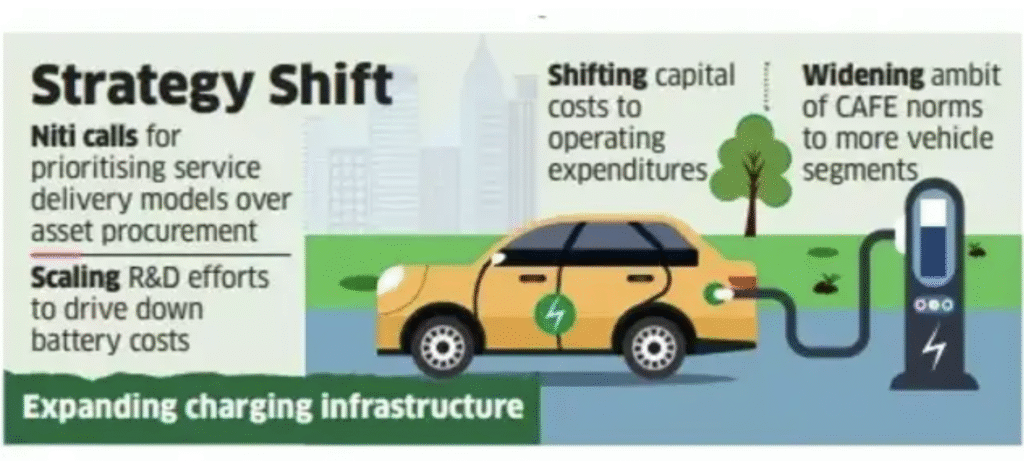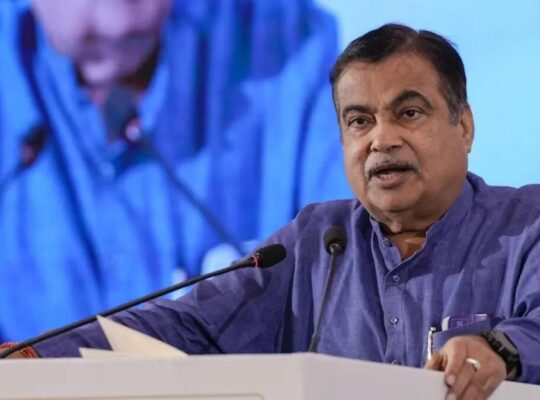A Bold Roadmap to Accelerate India’s Electric Mobility Revolution: TECH PILOTING WING EASE OF DOING BUSINESS
Source: EODB NEWS | Published: 18 August 2025
The newly released NITI Aayog insightful report “Unlocking $200 Billion Opportunity: Electric Vehicles in India” the EV sector showcases a promising growth trajectory. What stands out most is the report’s clear shift from simply providing incentives to setting well-defined targets, mandates, and the kind of enabling policies that build momentum in segments where electric vehicles make the most difference—buses, trucks, and urban transport fleets.
India’s journey from just 50,000 EV sales in 2016 to over 2 million in 2024 shows genuine progress, but as the report highlights, getting from 7.6% EV share today to the 2030 goal of 30% will require smarter and faster action. The focus on pilot programs that saturate select cities with electric buses and freight solutions is practical and sets up visible success stories for the rest of the nation to follow.
With this index becoming public and updated annually, states will gain access to a rich repository of best practices, success stories, and learning cases to adopt, incentivise, and prioritise electric mobility. This healthy competition will not only accelerate progress at the state level but also drive transformative benefits for the nation as a whole.
Abhijeet Sinha, National Program Director,
Ease of Doing Business & Project Director, NHEV
The call to ramp up research, local battery manufacturing, and to include EVs in priority lending is also crucial. Making sure India is not just adopting but also inventing and building the future of mobility will strengthen our entire industrial ecosystem and bring jobs, clean air, and lower oil imports.
Importantly, the blueprint’s focus on time-bound, phased mandates, especially for high-impact vehicle categories, sets a firm course for public and private players alike. States, cities, and industry leaders now have clarity on what, where, and how to act, turning the ambition of a $200 billion EV market into a practical, actionable roadmap.
$200 billion in the auto sector, $120 billion in advanced battery and EVSE infrastructure, and $180 billion in solar and renewable mobility integration are the key components that will together contribute $500 billion by 2030, out of India’s $2 trillion clean climate economy ambition. Within this, $500 billion will come from decarbonising manufacturing and the mainstream economy, while $1,000 billion will be driven by household and commercial adoption. This integrated growth is how India can achieve both climate leadership and economic resilience.
Mr. abhijeet sinha, national program director,
ease of doing business & project director, nhev
This is exactly the kind of policy clarity, ecosystem support, and result-oriented vision that accelerates both Ease of Doing Business and Ease of Doing EV operations in India. The road ahead is collaborative and challenging, but with these recommendations—focused city pilots, innovative public-private financing, digital integration, and phased mandates—India is positioned not just to catch up but to lead the global EV transition.
NITI Aayog lays out blueprint to fast-track EV adoption in India
Source: ECONOMIC TIMES | Published: 4 August 2025
NITI Aayog calls for a shift in approach towards electric vehicles, moving from incentives to mandates and disincentives, focusing on high-potential vehicle segments and geographies and enabling financing for electric buses and trucks.
In its report ‘Unlocking a $200 Billion Opportunity: Electric Vehicles in India’s, released on Monday, the Aayog has proposed establishing a national electric vehicle policy with clear targets and timelines along with a regulatory framework with phased EV mandates to unlock the $200 billion opportunity in India’s electric mobility sector.
Further, the Aayog has recommended operationalising a blended finance facility to reduce capital costs for commercial EV segment and implementing pilot programmes to achieve 100% electrification of buses, paratransit and freight vehicles in five urban areas.
The Aayog also calls for prioritising service delivery models over asset procurement, shifting capital costs to operating expenditures and scaling R&D efforts to drive down battery costs, enhance energy density and reduce reliance on imported rare earth materials.

“Strategic scaling of charging infrastructure and enhancing public awareness and information systems are critical enablers,” the Aayog said.
India aims to achieve a 30% share of electric vehicles in total vehicle sales by 2030.
As per the Aayog, with 18.78 million EV sales in 2024 or just 7.6% of total vehicle sales, the country needs to accelerate significantly to meet its 2030 targeting which will require an increase of over 22% in the next five years.
The report provides data-driven insights, identifies key unlocks and recommends actionable steps to support a faster, more coordinated national transition to clean mobility.












